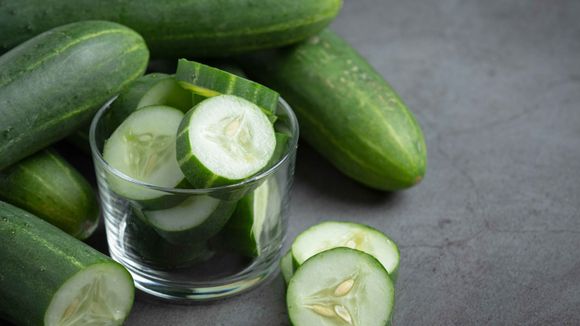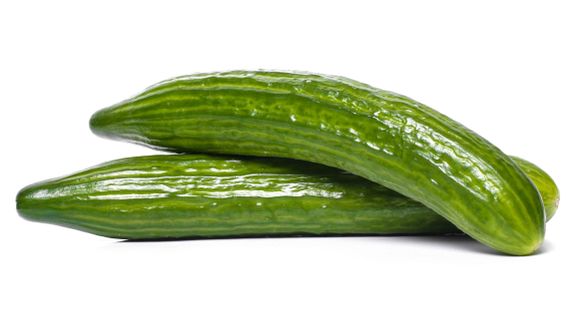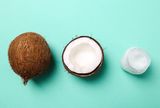What we need to know about cucumber
Cucumber (Cucumis sativus) causes controversy among experts, since they often consider it both fruit and vegetable, since it belongs to the same family of plants as that of pumpkin and watermelon, that is, the pumpkin family (Cucurbitaceae).
Well-known and refreshing cucumbers are long and thin, available in many colors. They have a distinct soft taste and a slight smell of melon due to the presence of aldehydes. The slight bitterness of the cucumber skin is due to the hellebore in it. For these biochemical compounds, on the other hand, there is evidence that they have an anticancer effect! 1 The more complex medical and scientific details are described in the studies, but in short the esthetic and semisynthetic hellebobitasins show promising anticancer effects ranging from antiproliferation, cell cycle cessation to apoptosis induction (programmed cell death).
Nutritional facts about cucumbers
Cucumbers contain 96% water. They are ideal for detoxification and prevention of dehydration. Cucumbers are also rich in phytonutrients and vitamin K. They are also a very good source of pantothene acid and molybdenum. Cucumbers also contain honey, potassium, manganese, vitamin C, phosphorus, magnesium and vitamin B1.
10 health benefits of consuming cucumbers
Source of antioxidants and trace elements
Cucumbers contain antioxidants such as beta carotene and flavonoids, which help fight inflammation and protect cells from chronic diseases. According to a publication in the Journal of Aging Research and Clinical Practice, cucumbers contain a group of polyphenols called lygnations, which can be useful in treating estrogen-related cancer.
Regulate blood pressure
Cucumbers are a good source of potassium, magnesium and dietary fiber. These nutrients are known to lower blood pressure, thereby reducing the risk of heart disease.
Research also proves that regular consumption of cucumber juice is useful for reducing blood pressure in elderly people with hypertension.
Useful for digestion
Cucumbers act as a cooler for our stomach. Soluble fiber in cucumbers helps to slow digestion. In addition, the high water content in the cucumber makes our feces soft, prevents constipation and helps to regularly visit the toilet.
Reduces blood sugar
Cucumbers are known to reduce blood sugar levels, thus being useful in the management and prevention of diabetes mellitus.
Help with weight loss
Cucumbers contain 96% water and are low-calorie. In 100 g cucumber has only 15.5 calories. The high water content and low calorie content in cucumbers help to reduce weight.
Rich in vitamins
Cucumbers contain a number of B vitamins, including vitamin B1, vitamin B5 and vitamin B7 (biotin). They are important for brain health, nervous system, hair and skin health, energy metabolism, etc.
Nicer skin with cucumbers
Cucumbers are great means for maintaining natural beauty. Applying cucumber juice to the skin makes it soft and radiant. The anti-inflammatory effects of cucumber naturally brighten our skin and reduce blackening.

Useful for hair & nails
Cucumbers contain silica, which is an important component in hair and nail care. They help strengthen nails and protect them from fragility, along with other B vitamins they contain.
Prevent bad breath
Phytochemicals present in cucumber destroy bacteria in our mouths that cause bad breath. Of course, besides them, other means are needed to deal with bad breath, if it is present. The causes may be stomach problems, teething problems, etc.
Potential anticancer action
As mentioned, the cuckoo cells present in cucumbers have anticancer properties, including in prostate cancer [ref. 1]









